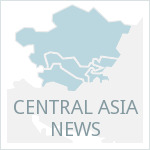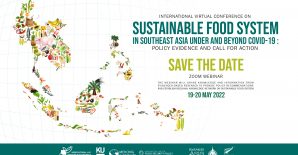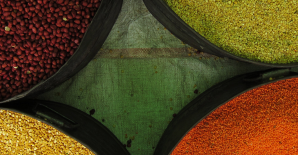News
Uzbekistan drops objections to giant Tajik hydro project
In a landmark reversal of a longstanding strategic policy, Uzbekistan declared that it will support Tajikistan’s Rogun Dam project. On his first visit to Tajikistan since entering office, Uzbek president Shavkat Mirziyoyev announced that his government will drop its objections to what is projected to become the world’s tallest dam. Tajikistan views Rogun as a solution to its recurring energy problems and a potential revenue source, while Uzbekistan had long opposed it over fears that it would disrupt the flow of irrigation water. The diplomatic breakthrough follows months of speculation and a gradual re-opening of commercial ties between the two countries. – Reuters
WFP expands school meals program in Kyrgyzstan
The UN World Food Programme will scale up a school meal program to cover more than half of Kyrgyzstan’s primary schools with the support of a $10 million contribution from the Russian Federation. Russia provided $12 million toward the launch of a pilot school meal program in 2013 that was well received by local authorities and the donor community. The new funding will help feed 175,000 students in over 500 schools in addition to the 114,000 students in 335 schools that are currently being served by the program. – WFP
Seven milk farms to be built in North Kazakhstan
Seven milk farms will be constructed throughout the North Kazakhstan region this year. Regional officials plan to increase milk production by 3 percent and increase employment opportunities. North Kazakhstan trails other regions in milk production, but is home to a quarter of the country’s milk processing in terms of volume. – Astana Times
Uzbek, Kazakh farmers eye the development of new sheep breed
Representatives of Umar, an Uzbek agricultural firm, visited Shymkent, Kazakhstan recently to discuss the establishment of a joint cattle-breeding complex. Umar is currently working with Chinese entrepreneurs and is developing contacts with businesses in other Central Asian countries. They also discussed crossing the Kazakh Edilbay sheep, which can weigh over 110 kilograms and can tolerate extreme temperatures, with the Gissar sheep commonly found in Uzbekistan. – Trend News Agency
Analysis & Other Information
The transformation of the Uzbek-Tajik relationship
Several stories have been written this week about the historic reconciliation between Tajikistan and Uzbekistan. A number of articles including this analysis in The Jamestown Foundation and another on EurasiaNet touch upon the personal animosity between former Uzbek president Islam Karimov and his Tajik counterpart Emomali Rahmon that underwrote bilateral ties and stifled diplomatic efforts to negotiate hot-button issues like the Rogun Dam. The EurasiaNet article focuses on the economic benefits of normalized relations between the two countries and suggests an explanation for its timing. – Jamestown Foundation, EurasiaNet
IMF staff concluding statement following visit to Turkmenistan
An International Monetary Fund team recently completed a periodic two week mission to assess macroeconomic and financial developments in Turkmenistan. While the statement relays the officially-reported figure of 6.5 percent economic growth, it also indicates that Turkmenistan faces fiscal challenges that its recent cutbacks have only partially addressed. The IMF recommended further reduction in public spending, finance reform, and improved quality of macroeconomic and financial data. – IMF
Opening up Uzbekistan to tourism
Citizens of Israel, Turkey, Korea, Japan, Malaysia, Indonesia, and Singapore will be able to visit the country visa-free for 30 days as part of a wider effort to ease visa procedures for foreign tourists. Previously, all foreign nationals had to register at the local police station within three days of arrival, which can now be delegated to hotel staff or a local host. Although Uzbekistan is host to a number of well-known historical sites and was a common tourist destination during Soviet times, some observers believe that the economic potential of tourism is being overstated and that further investment is needed. – Institute for War and Peace Reporting
Publications & Reports
Household allocation of microfinance credit in Kyrgyzstan
S. Angioloni, Z. Kudabaev, G. Ames, and M. Wetzstein (2018). Post-Communist Economies, 30(1), pp. 78-98.
Eurasian Economic Union: a challenge for EU policy towards Kazakhstan
A. Konopelko (2018). Asia Europe Journal, 16(1), pp. 1-17.
Bioclimatic conditions of the winter months in western Kazakhstan and their dynamics in relation to climate change
A. Nyssanbayeva, A. Cherednichenko, V. Cherednichenko, N. Abayev, A. Madibekov (2018). International Journal of Biometeorology, 62, pp. 1-11.
Is Tajikistan a potential market for genetically modified potatoes?
M. Yormirzoev, R. Teuber, and D. Baranov (2017). Ekonomika Regiona, 14(1), pp. 216-226.
IWRM and the politics of scale: rescaling water governance in Uzbekistan
A. Zinzani and C. Bichsel (2018). Water, 10(3), pp. 281-296.
Events & Call for Papers
2018 Regional Summer School for Young Economists
Call for applications. 4 – 15 June 2018 in Tashkent, Uzbekistan. Organized by the International Food Policy Research Institute (IFPRI) and Westminster International University in Tashkent (WIUT). The course will largely focus on developing econometric analysis, policy analysis, and quantitative research skills for use in economics and related social sciences. The course is open to individuals who are engaged in research or are preparing for a career in research, are fluent in English, and are 35 years old or younger. Please click on the above link for further details. Deadline to submit applications is 20 April 2018.
"Agriculture Trade and Foreign Investments for Sustainable Regional Integration in Caucasus and Central Asia" Conference
6 – 7 September 2018 in Baku, Azerbaijan. Organized by Leibniz Institute of Agricultural Development in Transition Economics (IAMO) and Institute of Scientific Research on Economic Reforms (ISRER). The aim of this conference is to serve as a platform to discuss options for regional integration in the Caucasus and Central Asian countries and to explore opportunities for increasing agricultural exports from the region. Researchers, public officials, and private sector partners are invited to participate. The conference will be conducted in English and Russian. Please click on the above link for further details. Abstract submission is open until 11 May 2018.
Archived issues of the news digest can be found on the Central Asia page under the ReSAKSS Asia website: http://resakss-asia.org/regions/central-asia. A link to the newsletter can be found under Blog Posts.
The articles included in this news digest have been generated from online sources. Any opinions stated herein are not representative of, or endorsed by, the International Food Policy Research Institute or its partners.



